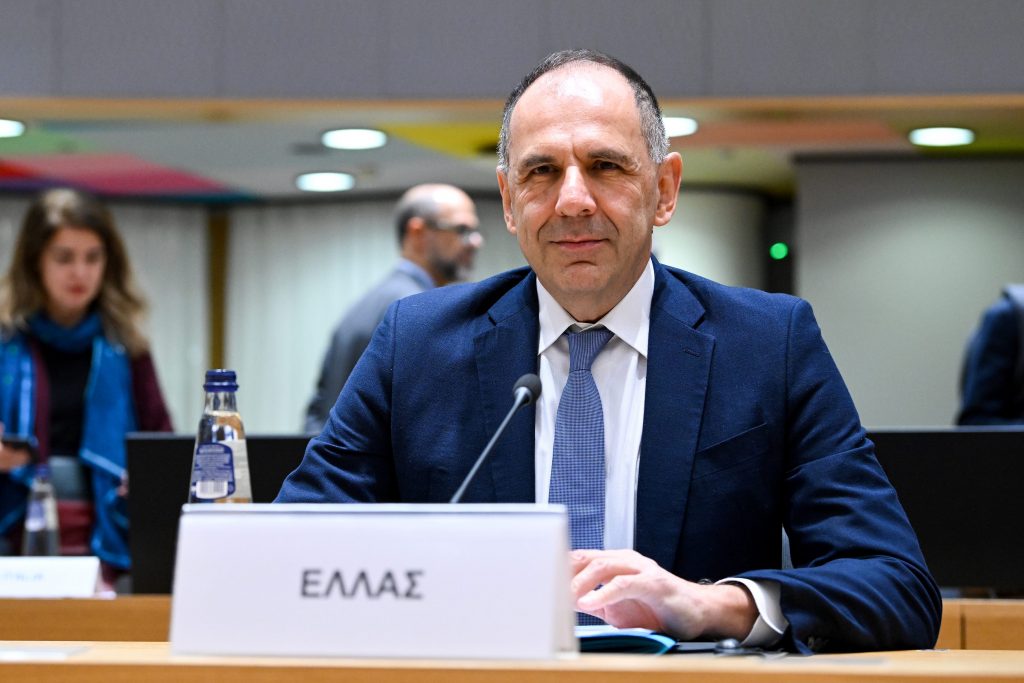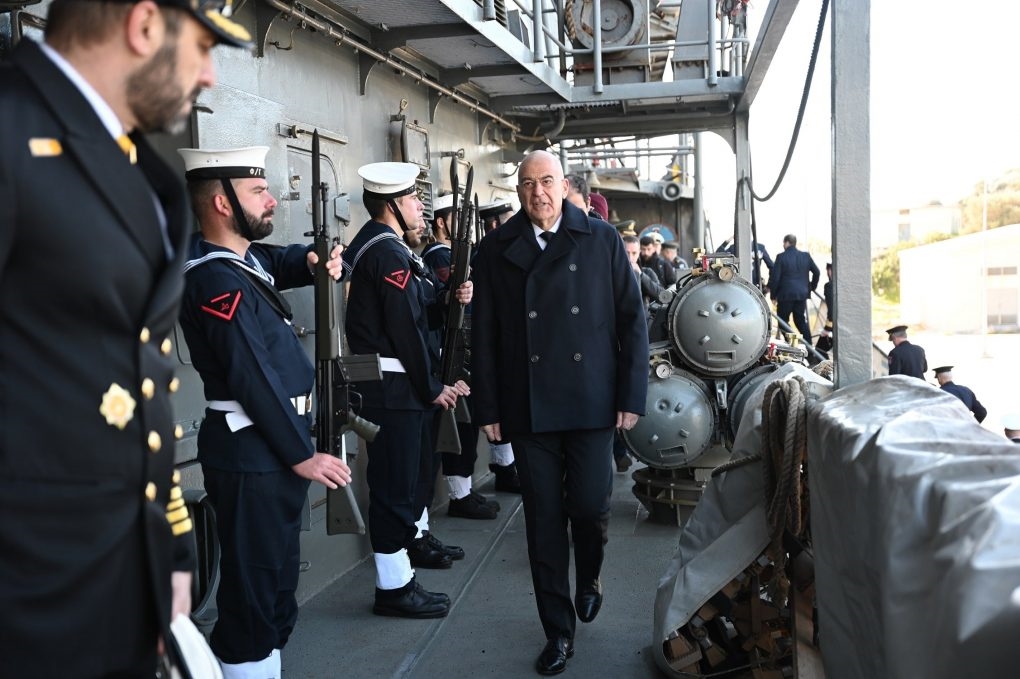Both the Greek foreign affairs and defense ministers over the weekend referred to, in separate occasions, to bilateral relations with Turkey, in light of a recent reproachment between NATO member-states Athens and Ankara but in the backdrop of decades of facing what the former considers a “difficult neighbor”.
“We have to make a basic choice: if we will continue to be in a state of permanent tension in our relationship with Turkey, or if we will discuss, soberly and in a premeditated spirit, so disagreements will not lead to a new crisis,” Foreign Minister Giorgos Gerapetritis was quoted as saying by the Athens daily “Ta Nea” on Saturday.
“We must all face this dilemma responsibly and without excuses. Because it concerns the peace and prosperity of our country in the present and the future,” he added.
“Self-confidence, as well as prudence and a correct perception of the facts are necessary characteristics in a dialogue with complex characteristics and historical burdens,” the Greek FM continued.

Greek Minister of Foreign Affairs Giorgos Gerapetritis
In outlining the coming steps, he said the government will adhere to a strict itinerary, with a political dialogue setting resuming on March 11, followed by talks on implementing confidence building measures (CBMs) with the Turkish side on April 11, and discussions over what both sides call a “positive agenda”, on April 15. The climax of this season’s schedule of contacts and talks, as he said, will be Greek Prime Minister Kyriakos Mitsotakis’ much-anticipated visit to Ankara in May.
“I don’t think long-standing problems will be solved from one minute to the next. And, of course, I realize that the two countries preserve their basic positions, a fact after all, that was clearly ascribed to in the Declaration of Athens. This, however, does not prevent the use of milder rhetoric, in principle, and less tension,” he underlined.
In a related development, speaking from the Dodecanese Island of Rhodes, Defense Minister Nikos Dendias on Saturday said the country will not budge on its rights, as emanating from international law and the United Nations Convention on the Law of the Sea (UNCLOS).
“It’s our constitutional obligation to defend these rights, which are also guaranteed by the European acquis, namely, a set of rules in European Union law, which all member-states of our Union obey. Our country naturally maintains the right to defend itself against any threat and in every inch of our national territory, even the most remote and smallest rock islet,” he said.
Dendias, the former foreign minister succeeded by Gerapetritis, reminded that Rhodes and its surrounding islands serve as the external borders of the European Union.

Greek Defense Minister Nikos Dendias during a recent inspection of the Hellenic Navy frigate “Hydra”.
Dendias ticked off the Treaty of Lausanne, the Italo-Turkish agreements of 1932 and the Treaty of Paris of 1947 as establishing absolute and undeniable Greek sovereignty over all the islands of the Aegean – sans Gökçeada (Imbros) and Bozcaada (Tenedos). He also made a special reference to the significance of the isle of Kastellorizo, located some 127 kilometers east-southeast of Rhodes and only some two kilometers from the nearest point of the Asia Minor coast.



